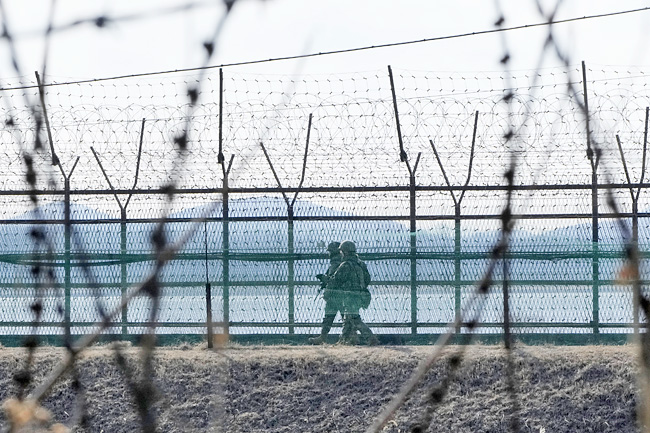SEOUL, SOUTH KOREA (AP) – South Korea called North Korea “our enemy” in its biennial defence document published yesterday, reviving the label for its rival for the first time in six years, as tensions worsen between the two countries.
North Korea conducted an unprecedented number of missile tests in 2022, including simulated nuclear attacks on South Korea.
In response, South Korea’s conservative government led by President Yoon Suk-yeol has been seeking a stronger United States (US) security commitment and boosting its own military capabilities.
Descriptions of North Korea in past South Korean defence white papers reflect the changing rocky ties between the two Koreas.
Past South Korean documents called North Korea the “main enemy”, “present enemy” or “enemy” in times of animosity. But they avoided such references when relations were improved. North Korea “doesn’t give up its nukes and is persistently posing military threats to us, so the North Korean government and military… is our enemy”, the 2022 South Korean defence white paper issued yesterday said.

The document noted that in December, North Korean leader Kim Jong-un called South Korea “our undoubted enemy” in a speech at a key ruling party meeting. It also cited the passage of a new North Korean law authorising pre-emptive use of nuclear weapons in a broad range of scenarios.
The document said the North Korean nuclear programme and provocations “are seriously threatening our security”. It said the main objectives of South Korean defence policies include bracing for threats and a potential invasion by North Korea, deterring a war on the Korean Peninsula and contributing to a peaceful future reunification.
North Korea didn’t immediately respond to the revived use of enemy terminology in the South Korean defence paper, though it has lashed out at past such labels, calling them provocations that demonstrated South Korean hostility.
South Korea first called North Korea its “main enemy” in 1995, a year after North Korea threatened to turn Seoul into “sea of fire” – rhetoric the North has since repeatedly used when confrontations flared.



















































